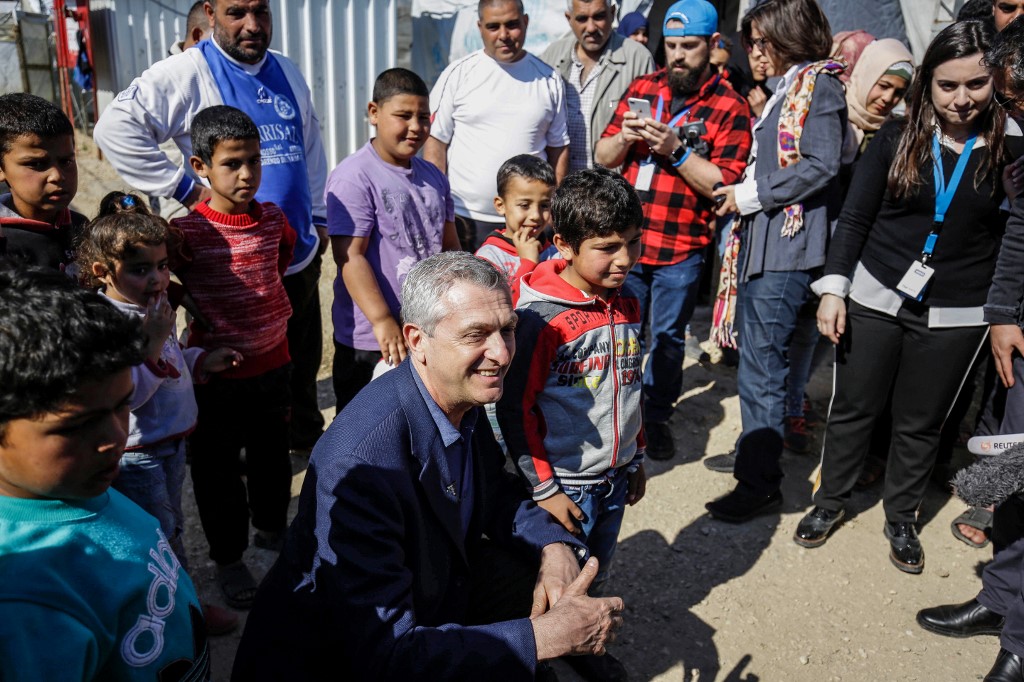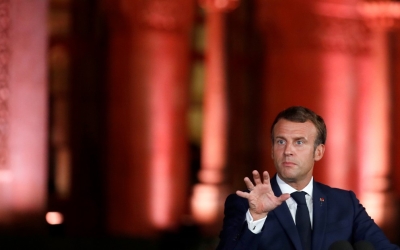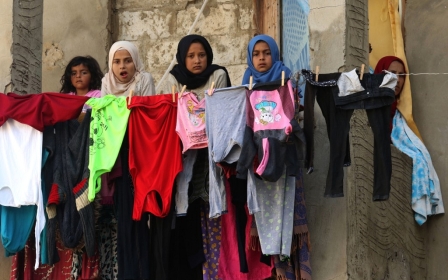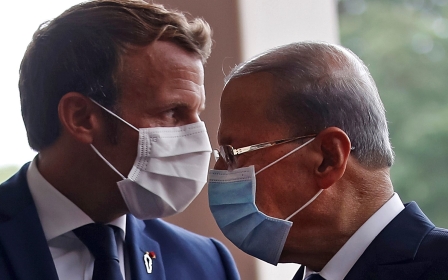Why we need to decolonise Lebanon's aid sector
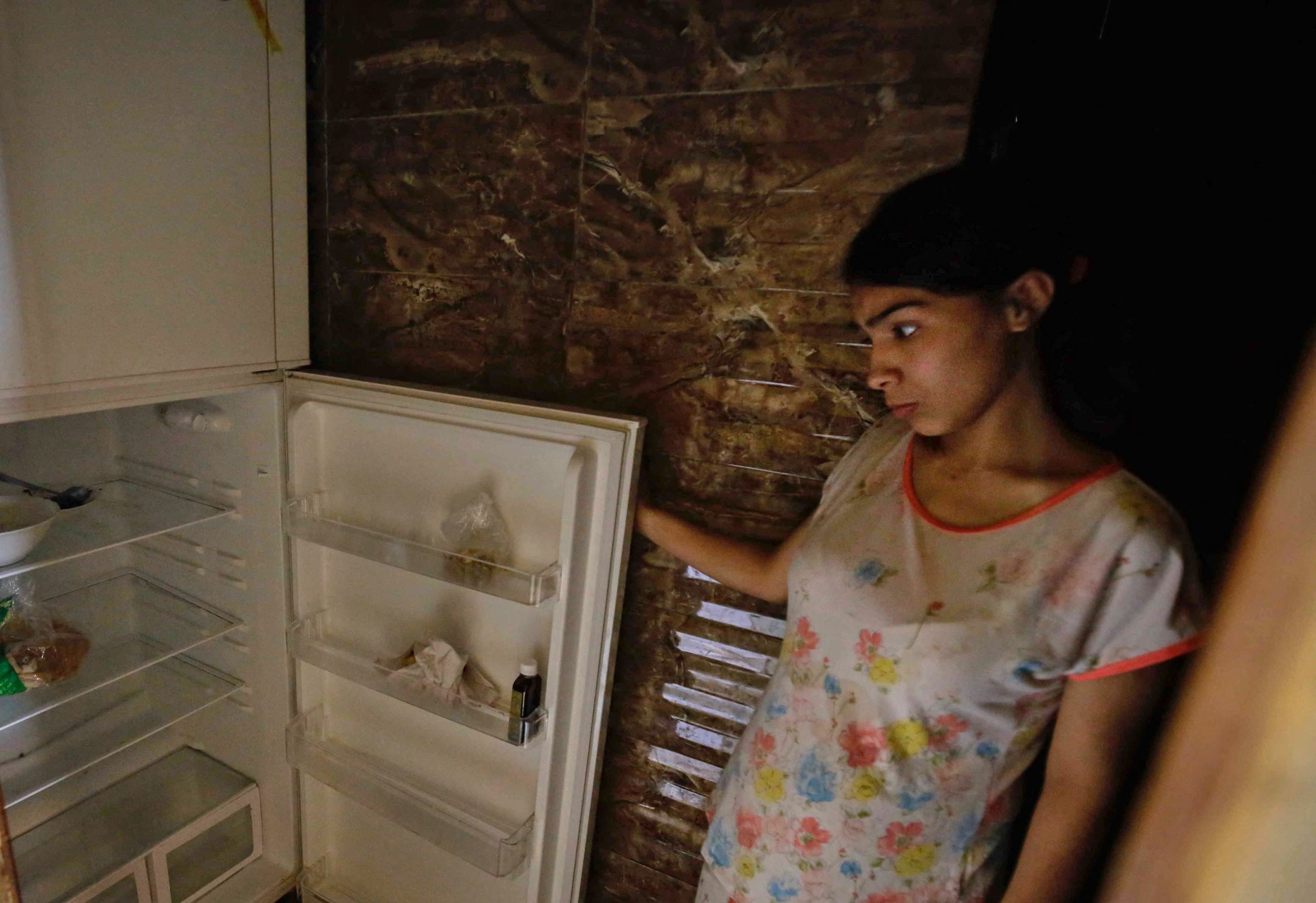
The aftermath of last summer's Beirut explosion has shed light on the key role of grassroots organisations. Embedded in communities, they are praised for their knowledge of local context and their ability to address the deep roots of social and systemic injustices.
Their role has been all the more crucial during the Covid-19 pandemic, with lockdown restrictions limiting external intervention.
Yet, the aid system in Lebanon is premised on the power of a familiar group of United Nations agencies and international NGOs. The bulk of foreign money (85 percent), mostly sent by European countries and the US, transits through the UN refugee agency (UNHCR), the World Food Programme and the UN children's fund (UNICEF).
According to the financial tracking service of the UN Office for the Coordination of Humanitarian Affairs, out of the $1.11bn of international funding reported for the year 2019 in Lebanon, almost 80 percent came from the US, Germany, the European Commission and the UK; 74 percent of these funds were received by three UN institutions: the WFP, UNHCR and UNICEF.
As mentioned in the Lebanon Crisis Response Plan Annual Report 2019, about 2019 aid funding: "The direct allocation of funds to NGOs remains consistently low, with 4 percent to national NGOs and 18 percent for international NGOs."
Societal reckoning
The great societal reckoning over racial injustice and the pandemic has exposed the need for a radical rethink about how to decolonise the aid system. Colonisation refers to the notion of western practitioners imposing their solutions on countries from the so-called Global South. The aid sector in Lebanon remains in the hands of western-funded, white institutions, somewhat reminiscent of the French mandate.
Rather than challenging this hierarchy of dominance, the role of local NGOs has been limited to that of implementation partners and frontline service providers, rather than being empowered as decision-makers. Donors control the levers of development by choosing to fund larger and more institutionally sophisticated NGOs, at the expense of smaller ones that are usually closer to the communities in question.
Recurrent criticisms by local actors stress that donors impose their own agendas, which can be out of touch with needs on the ground
The Foreign Policy Instruments department of the European Union funds NGOs with bank accounts, specific fundraising practices, external auditing firms, etc. Project-based funding has reinforced this colonialist mentality: to access vital funds, local NGOs must adjust their missions to suit donor preferences. This promotes a dependency culture, leading to toxic competition between NGOs.
Recurrent criticisms by local actors stress that donors impose their own agendas, which can be out of touch with needs on the ground. Donor willingness to outsource the Syrian refugee crisis to Lebanon has led to vulnerable Lebanese and Palestinian refugees sometimes being excluded from vital aid.
To fill this gap, local NGOs such as Banin primarily assist the Lebanese population; as a result, these groups are excluded from receiving institutional [neither from the UN or donor countries] funding from abroad.
An official at the Lebanese charity organisation told me that international donors have no interest in funding an NGO focusing exclusively on the most vulnerable Lebanese because of the UN agencies' mandate and of donors' political agenda.
"I think UNHCR, UNDP [the UN Development Programme] and UNICEF focus more on Syrians because it is their mandate: they are requested to focus more on the refugees than on the host community. And when it comes to foreign donors, it is because they want refugees to stay in Lebanon. They would pay the UN to keep them in Lebanon so they don't go to their countries."
In December 2019, as more of the country's population fell below the poverty line, local actors had to pressure foreign donors to change their criteria and dedicate at least 30 percent of their funds to Lebanese people.
Of the 12 Lebanese NGO representatives I interviewed during my research at the beginning of the economic crisis (between December 2019 and February 2020), all of them told me that they asked their donors to change their criteria regarding the target population to include more Lebanese. Depending on the organisation, they asked that Lebanese people represent 30 percent to 50 percent of the beneficiaries.
Quantitative outcomes
Donors prioritise quantitative outcomes, which are easier to market. Seeing the country through a "humanitarian lens," they were, until 2015, the year the Syrian refugee influx began, reluctant to fund development. Their approach to refugees has been focused on primary needs, even as NGOs have called for the enhancement of refugee autonomy through vocational training.
In addition, UN institutions are seen as too bureaucratic, squandering money on highly paid international staff salaries, while only half of their funds reach the intended beneficiaries. Conversely, grassroots organisations have lower overheads, meaning that the bulk of the money they raise can go directly to beneficiaries - 95 percent in the case of Thiqah, a charity based in Tripoli, according to a representative from the group.
The accountability mechanisms of foreign donors also force local actors to spend significant time on fastidious reporting, focusing on measurable outcomes rather than real, structural change.
Western-framed practices have sidelined the contextual expertise of local communities. This colonial mindset sees aid as being purely technical, depoliticising the Lebanese reality. The existence of many highly skilled Lebanese people makes it harder to justify this reliance on international staff, who are parachuted in with sets of indicators and deliverables, yet ignorant of the local context or language.
This "hierarchy of knowledge" has clear neocolonial underpinnings. It reproduces colonial practices of silencing local voices and their diversity of perspectives.
Regaining agency
Politics are difficult to navigate in Lebanon, and UN negotiations with the government sometimes end in deadlock. Local NGOs have a better understanding of how to approach the government and analyse its politics, yet they have been sidelined from the conversation.
There is no easy solution. Local NGOs reliant on international funding - and fearful of losing it - are strongly discouraged from denouncing donor practices. It will take a radically new way of thinking to decolonise aid, moving away from a system in which power is concentrated in the hands of a few to one where it is distributed equally.
Rather than being subservient to a multilateral system driven by global political forces, aid must be embedded in local organisations whose priorities lie with their people.
For foreign donors and UN agencies, this means recognising that policy should be driven by context and setting a narrative focused on local expertise. These organisations must also involve local communities in their talks with authorities, drawing on local knowledge of how things work.
Aid cannot provide what is needed to prevent Lebanon's collapse: political reform, good economic governance and an independent judiciary. It can, however, create a space in which the Lebanese people may regain agency, explore a more inclusive practice of power, and express their own ideas on the future of their country.
The views expressed in this article belong to the author and do not necessarily reflect the editorial policy of Middle East Eye.
This article is available in French on Middle East Eye French edition.
Middle East Eye propose une couverture et une analyse indépendantes et incomparables du Moyen-Orient, de l’Afrique du Nord et d’autres régions du monde. Pour en savoir plus sur la reprise de ce contenu et les frais qui s’appliquent, veuillez remplir ce formulaire [en anglais]. Pour en savoir plus sur MEE, cliquez ici [en anglais].



